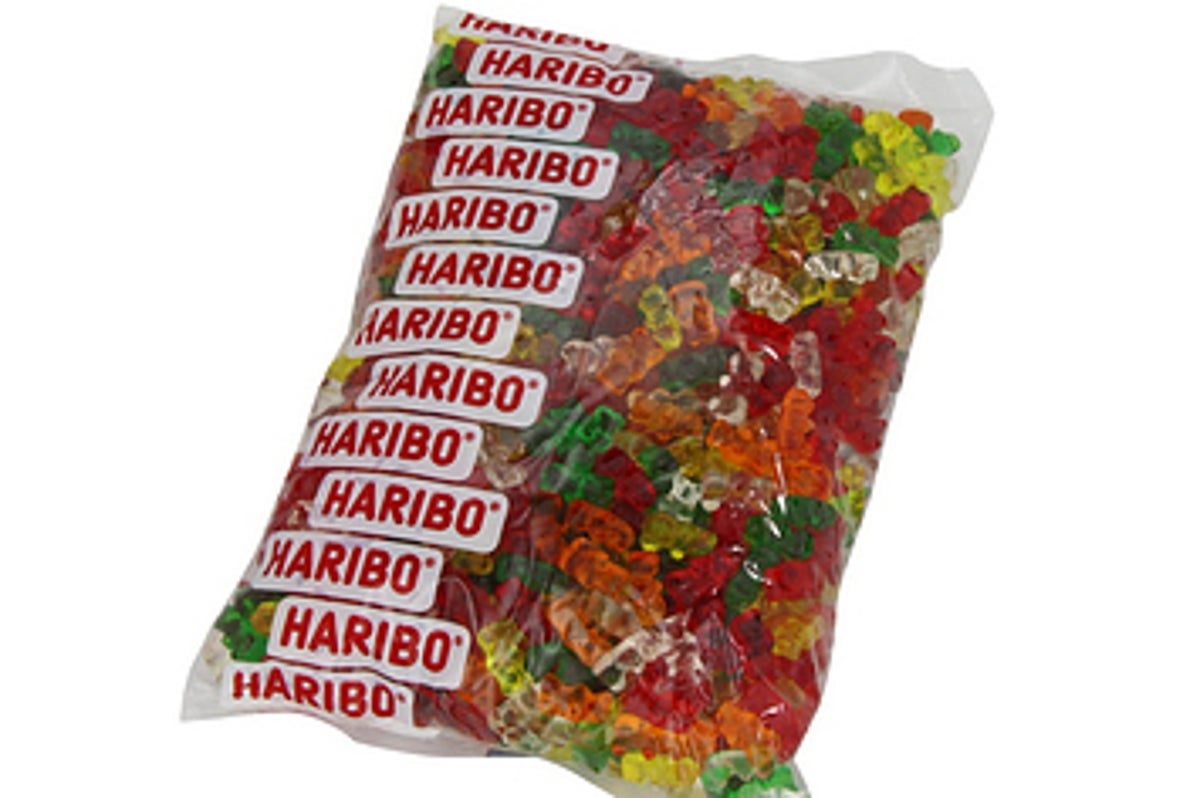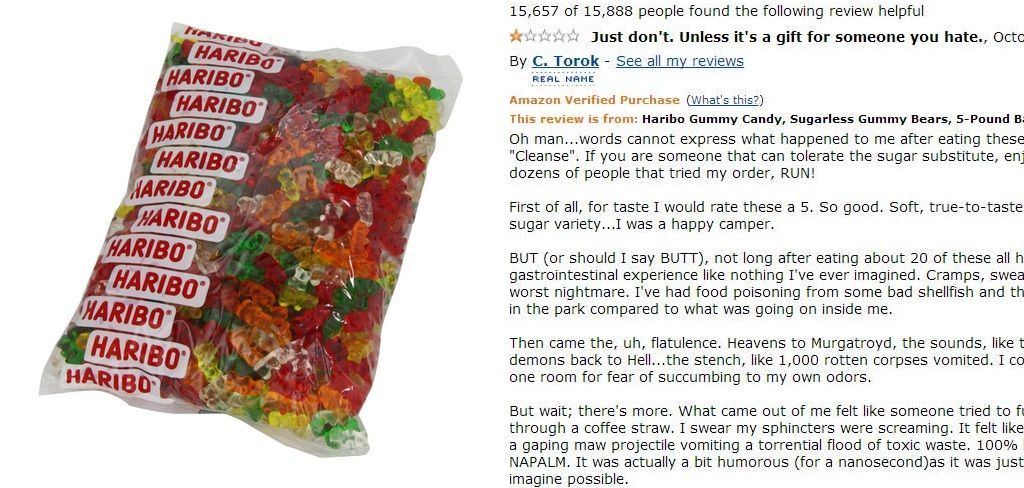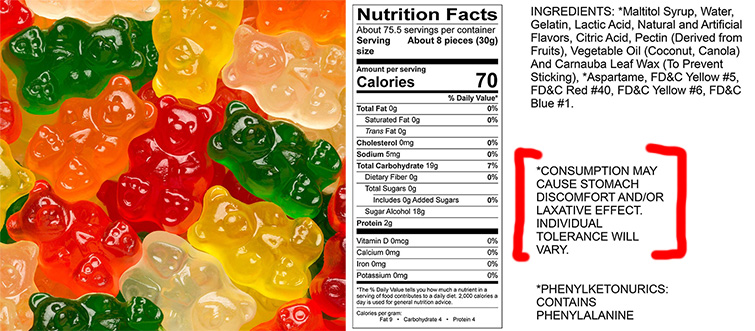The market is flooded with candies claiming to be better for your health, and none seem to have sparked more dialogue than Haribo’s Sugar-Free Gummy Bears. This confection, while marketed as a guilt-free treat, has become notorious for reviews detailing unexpected gastrointestinal horrors. Today, we delve into the complexities of this peculiar candy and what makes it such a polarizing item among consumers.

amazon reviews sugar free gummy bears haribo
The Sweet Start: Why Sugar-Free?
Let’s first understand sugar-free candies and their appeal. With the growing concern around sugar consumption and related health risks such as obesity and diabetes, products like sugar-free gummy bears have found their niche. The allure of indulging in sweet treats without the calories associated with sugar is intoxicating. However, as health guru Michael Pollan suggests, “Eat food, not much, mostly plants,” illustrating the essential need for balance in our diet.

amazon reviews sugar free gummy bears haribo
The Ingredients Breakdown
Maltitol: The Sweet Culprit
The primary sweetener in these gummy bears is maltitol, a sugar alcohol that offers the sweetness of sugar but with fewer calories. While it sounds appealing, experts warn that excessive consumption of maltitol can cause significant digestive distress. According to nutritionist Dr. Marion Nestle, “Reduction of sugar does not automatically lead to healthier options, especially when alternatives come with their own set of complications.”

amazon reviews sugar free gummy bears haribo
Mixed Reviews: The Internet’s Gummy Bear Saga
The internet has become a battleground for consumer opinions on these little candies. Numerous reviews on platforms like Amazon showcase a wide range of experiences, often more comedic than informative. One review states, “I had never felt such simultaneous relief and anguish in my life” after trying the sugar-free gummy bears. This sentiment resonates with many who have shared similar tales of distress following consumption.
The Comedic Horror Show
Many consumers describe their experiences in vivid detail, often attributing some rather exaggerated consequences due to their overindulgence. A common theme emerges from these narratives — a blend of humor and horror, with phrases like “See you in hell, Haribo Sugar-Free Gummy Bears” echoing through forums and comment sections. As food author and researcher Brian Wansink points out, “These candies have quickly morphed from a simple sugar-free option to a full narrative of survival.”
Fan Favorites vs. Hated Treats
Interestingly, while numerous reviews condemn these gummy bears, others rave about their delicious taste. One user exclaimed, “For taste, I would rate these a 5. So good. Soft, true-to-taste fruit flavors like the sugar variety…” This dichotomy emphasizes personal tolerance levels and digestive systems, illustrating that what may cause disastrous results for one could be an innocent treat for another.
Health Implications: A Double-Edged Sword
Despite the humorous comments, it’s essential to analyze the health aspects linked with consuming these products. Nutrition expert Rachel Beller emphasizes that “While sugar-free options like Haribo’s gummy bears can seem like a healthier choice, they can lead to unintended consequences. Moderation is key.” The high consumption of sugar alcohols can lead to various gastrointestinal issues, including bloating, cramping, and even diarrhea, commonly referenced in Reviews on Amazon.
The Balance of Indulgence
Promoting balance while enjoying sweets is vital. Lifestyle coach and wellness advocate Talia Pollock advises, “The occasional sweet treat can enhance mental health, but it’s crucial to remain aware of portion sizes.” This notion is increasingly relevant in today’s society, where the ease of access to processed foods often blurs lines of moderation.
A Positive Perspective: Self-Love and Gummy Bears
While it’s easy to laugh at the agony shared in various reviews, these reactions reflect a broader cultural narrative surrounding self-love and body positivity. In today’s world, self-acceptance is crucial. Products like Haribo Sugar-Free Gummy Bears remind us that imperfections exist not just within ourselves but also within what we consume. “Embrace the imperfections,” asserts body positivity advocate Lesley Kinzel, “it’s all a part of the journey.”
Conclusion: To Eat or Not to Eat?
The debate around Haribo Sugar-Free Gummy Bears will likely rage on. For some, they represent a sweet craving quelled without the guilt. For others, they are a cautionary tale against the excesses of sugar alternatives. What remains clear, however, is the importance of moderation, the need for humor in our misadventures, and the self-love that guides our choices.
Frequently Asked Questions (FAQ)
Why did Haribo discontinue sugar-free gummy bears?
Haribo faced significant backlash due to unpleasant side effects that many customers reported, leading to a temporary halt in production of these candies.
What is the sweetener in Haribo sugar-free gummy bears?
The primary sweetener used in Haribo’s sugar-free gummy bears is maltitol, which is known to cause gastrointestinal discomfort in excessive amounts.
How many carbs are in sugar-free gummy bears?
A typical serving of sugar-free gummy bears contains approximately 28 grams of total carbohydrates, suggesting moderation is essential for those monitoring carb intake.
Does Haribo sugar-free?
Yes, Haribo does produce sugar-free gummy bears aimed at consumers looking for lower-calorie options, though they come with caveats regarding digestive health.
Overall, while Haribo Sugar-Free Gummy Bears may offer a sugarless alternative, customers are advised to approach them with a sense of humor and a mindful eye toward their bodies’ responses. The adventure of taste-testing these quirky confections highlights a broader dialogue on health, happiness, and indulgence.